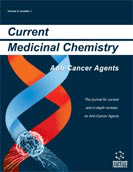Abstract
The limitations of cisplatin as an anticancer drug have stimulated the search for other antitumor-active platinum complexes with improved pharmacological properties. The two main goals in the search for new platinum anti-cancer agents are the reduction of the dose-limiting toxicities of cisplatin and the circumvention of cisplatin resistance. However, it should be pointed out that this has proven to be a difficult task. In fact, less than 1% of the thousand of platinum complexes tested for preclinical antitumor activity have entered clinical trials in the past 30 years. Nonetheless, right now, several new platinum complexes are in clinical trials, a proof of the continued belief that platinum complexes may still fulfil the needs for novel antitumor drugs. This review will focus on the three main innovative approaches found in the platinum anticancer-field, namely, (1) compounds with decreased reactivity against nucleophiles, (2) compounds with carrier ligands, and (3) compounds which bind differently to DNA as compared to cisplatin. In the latter class, special attention is paid to dinuclear and polinuclear platinum complexes.
Keywords: antitumor-active platinum complex, platinum drug
 2
2

















